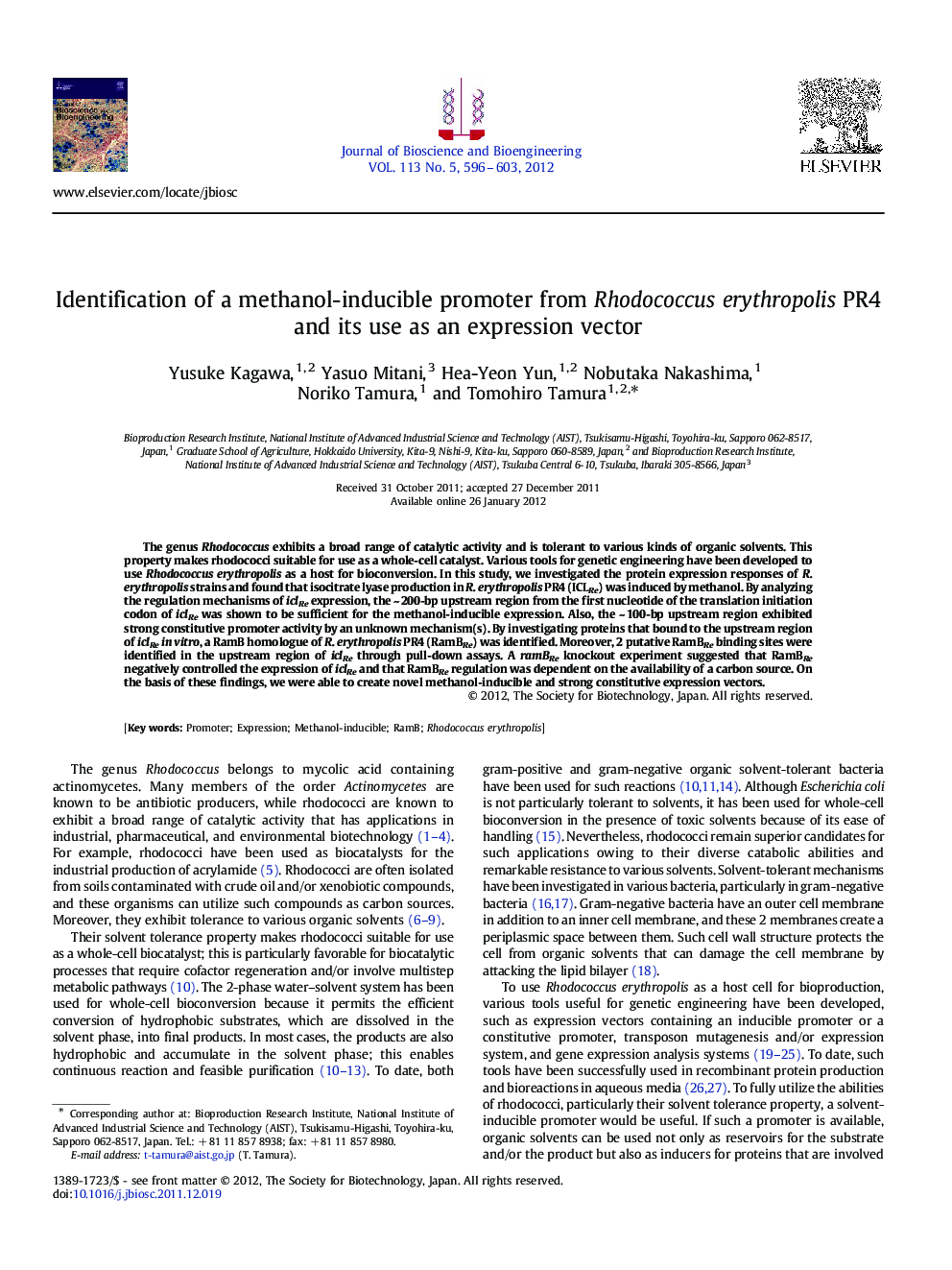| Article ID | Journal | Published Year | Pages | File Type |
|---|---|---|---|---|
| 21140 | Journal of Bioscience and Bioengineering | 2012 | 8 Pages |
The genus Rhodococcus exhibits a broad range of catalytic activity and is tolerant to various kinds of organic solvents. This property makes rhodococci suitable for use as a whole-cell catalyst. Various tools for genetic engineering have been developed to use Rhodococcus erythropolis as a host for bioconversion. In this study, we investigated the protein expression responses of R. erythropolis strains and found that isocitrate lyase production in R. erythropolis PR4 (ICLRe) was induced by methanol. By analyzing the regulation mechanisms of iclRe expression, the ~ 200-bp upstream region from the first nucleotide of the translation initiation codon of iclRe was shown to be sufficient for the methanol-inducible expression. Also, the ~ 100-bp upstream region exhibited strong constitutive promoter activity by an unknown mechanism(s). By investigating proteins that bound to the upstream region of iclRein vitro, a RamB homologue of R. erythropolis PR4 (RamBRe) was identified. Moreover, 2 putative RamBRe binding sites were identified in the upstream region of iclRe through pull-down assays. A ramBRe knockout experiment suggested that RamBRe negatively controlled the expression of iclRe and that RamBRe regulation was dependent on the availability of a carbon source. On the basis of these findings, we were able to create novel methanol-inducible and strong constitutive expression vectors.
